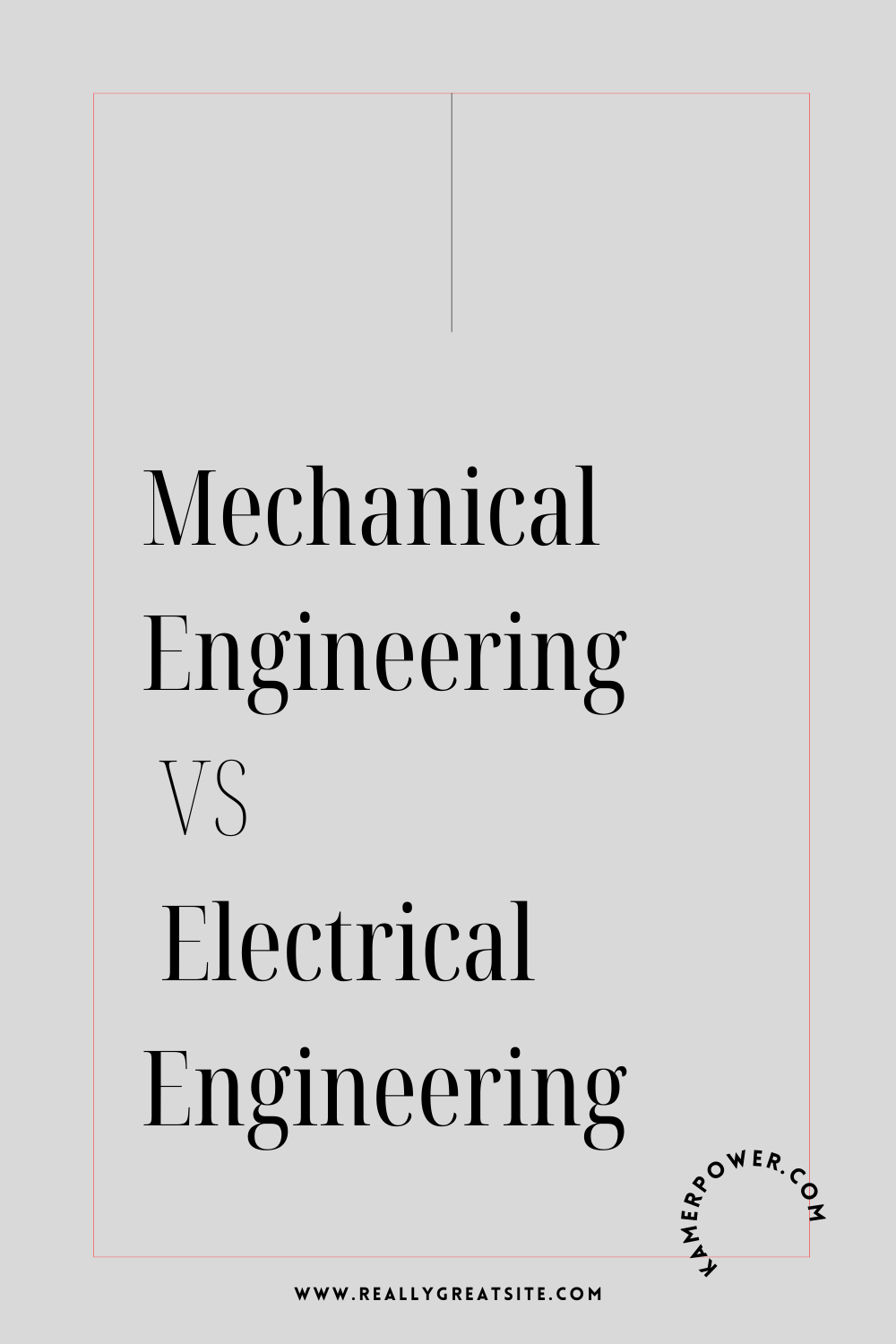Mechanical Engineering vs Electrical Engineering: Salary, Scope, Job
Mechanical Engineering vs Electrical Engineering: Salary, Scope, Job, Similarities, Difference. Mechanical engineering and electrical share a lot in common. Even though they both take separate academic paths to become one, they still share a lot of creativity, skills, and even courses in common.
The engineering field is incredibly broad in its reach. From aeronautical to nanotechnology, engineers in these specialties and many more combine mathematical and scientific principles to make the current way of doing something with a particular product, item or service even better than it was before.
Whether it’s commercial jetliners that traverse the world or appliances that make dinner preparation faster, engineers have a hand in many aspects of day-to-day life, each very different from the next.
Contents
What Is Mechanical Engineering?
There are absolutely quite a number of definitions of mechanical engineering. Basically, this article will give a variety of definitions alongside job descriptions to aid you visualize what mechanical engineering program is.

What is Electrical Engineering?
Similar to mechanical engineering, different definitions and explanations exists. However, this article will proffer a detailed job description for electrical engineers to clarify what electrical engineering entails.
The field of engineering that specializes in the study, design and application of equipment, devices and systems which use electricity, electronics and electromagnetism is called electrical engineering.
Which should I choose? Electrical engineering or mechanical engineering
As detailed by the Bureau of Labor Statistics, each position requires a heavy dose of creativity, mathematical and mechanical skills and a discerning ability to identify and solve problems (Bureau of Labor Statistics, 2018).
Electrical engineers focus on power generation — such as electricity — mechanical engineers focus on power application – getting physical parts, motors and components to behave or act in a desired manner.
Job functions of mechanical engineers:
- Design material-handling systems (conveyor belts, pulleys, automated transfer stations).
- Investigate technical glitches with sensors or components and offer solutions for how to overcome them.
- Oversee manufacturing processes of state-of-the-art devices.
Job responsibilities often held by electrical and electronics engineers:
- Create computer chips for new computer software or systems.
- Evaluate energy systems and offer recommendations for how to modify them so they last longer.
- Introduce alternative applications or modifications to enhance technical performance.
Job Description of a Mechanical Engineer
Generally, the basic responsibility of mechanical engineers in any company is usually to properly research, design, develop, build and test the different mechanical aspects of devices and sensors.
Other roles may include the following:
- Aiding in the creation of designs that help the mechanical and thermal systems and subsystems.
- Using analytical approach with CAD to create designs.
- Creating, developing, and testing different prototypes of devices.
- Analyzing the results of the test and making changes in design or any system.
- Supervising the entire process of manufacturing of any product.
- Analyzing several problems to check thermal and mechanical devices.
- Finding out the best way to solve these problems to fix the devices.
- Investing in the diagnosis of equipment failure and solving them with the help of tools and techniques
Job Description of an Electrical Engineer
Basically, the role or responsibility of electrical engineers revolves around designing of several electrical systems that work in automobiles and aircraft systems as well. They concentrate on developing and installing the electric equipment which is provided in the communication and broadcast systems such as portable music players, GPA systems, and other options.
Other job roles of an electrical engineer may include:
- Supervising the installation, testing, and manufacturing of the different electrical equipment so that the products that are designed are all meeting the specifications and standards that are mentioned by the clients.
- Analyzing all the complaints and queries of the customers for making the diagnosis of the problems vanish and providing solutions that help in troubleshooting these problems.
- Aiding in the development and improvement of several electrical products with the help of new leases that are created by them
- Performing detailed calculations in order to develop, manufacture, install, and construct different specifications and standards all according to the different requirements.
- Collaborating with different project managers in the efforts of production so that the products that are created are being completely run and tested before being provided to the clients and customers.
Electrical engineering or mechanical engineering salary: Which degree pays higher?

According to the most recent figures available from the BLS, an entry-level mechanical engineer in 2018 made approximately $56,270. Electrical engineers earned slightly more at $61,190 (Bureau of Labor Stastistics, 2018).
The median pay for both professions is also relatively similar, per the BLS. Here as well, electrical engineers’ earnings are higher, at $96,640 to mechanical engineers’ $87,370 (Bureau of Labor Stastistics, 2018).
Exactly how much you can make in mechanical engineering vs. electric engineering is largely a function of your level of academic experience and how long you’ve been in this line of work.
As with most other professions, more seasoned engineers tend to earn more than those still in entry-level positions.
However, because advanced degrees are highly sought after by many employers, you stand to potentially earn more money straight out of college with a master’s degree than you would with a bachelor’s degree.

Can an electrical engineer work as a mechanical engineer?
Both are sub disciplines of the engineering faculty. So, an electrical engineer who has leans hard into technical drawing and basic mechanical stuff may work in position initially advertised for mechanical engineers.
Sources
Bureau of Labor Statistics, 2018. Electric and electronics engineers. Retrieved from:
https://www.bls.gov/ooh/architecture-and-engineering/electrical-and-electronics-engineers.htm#tab-2
Bureau of Labor Statistics, 2018. Mechanical engineers. Retrieved from:
https://www.bls.gov/ooh/architecture-and-engineering/mechanical-engineers.htm#tab-2
Recommendation